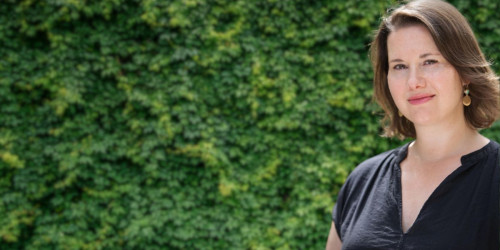
Uncovering the extraordinary in everyday life
Alison Stockham, Lucy Cavendish Fiction Prize longlist 2020 with The Cuckoo Sister, shares her journey from debut novelist to published author.
Following a hugely successful auction, All The Other Mothers Hate Me will be published in 2025 in the UK and US, with international and television adaptations forthcoming.
How and when did you get into writing?
I always dreamt of writing a novel, but it was firmly in the ‘someday’ category for me. Most of my career was spent as a broadcast journalist, criss-crossing the globe covering breaking news stories for television. Throw in a small kid, and there wasn’t much time for creative pursuits. It wasn’t until late 2021, after I completely burned out and realised I needed a fresh start that I began working on what would become ALL THE OTHER MOTHERS HATE ME. So I guess you could say I put it off as long as I could!
How did you hear about the Lucy Cavendish Fiction Prize and what made you enter?
A friend from my writing group told me about the contest and I entered on a whim. I had read somewhere it was good for aspiring writers to practise ‘putting your work out there’ and that was definitely true in my case. Sending in my submission forced me to go back and fill in all the blanks in my manuscript where I had written TK TK TK (to come) or ‘more words go here’ and to really consider my writing from someone else’s perspective. I won’t lie, I was super intimidated by the idea of these famous writer judges reading my work, but I decided to just go for it, and I’m so glad I did.
How did you feel when you were selected for the shortlist?
Being selected for the shortlist gave me such an incredible boost. At the time, I was still deep in slog mode, grinding out the final chapters and questioning everything. The announcement really motivated me not to give up. I felt like, ‘Oh ok, maybe other people get what I’m trying to do. Maybe it’s not complete trash.’
How did it feel to win?
Oh gosh. Winning the Lucy Cavendish Fiction Prize was one of my top 5 best moments ever. I can’t even tell you how meaningful the recognition was to me at that point in my life. The announcement was made at this wonderful ceremony in Cambridge. I was so surprised, I burst out ugly crying, and then, the over-eager American that I am, threw my arms around one of the judges, Dame Rose Tremain, who was just incredibly gracious about the whole scene.
Has being involved with the Fiction Prize helped your writing career?
Winning the Fiction Prize changed everything. Suddenly the agents were reaching out to me! Even more importantly, I gained a whole community of fellow writers, past winners, and industry professionals. The other women on the shortlist – Amy, Smita, Carrie, Helen and Anna-– created a What’s App group, and now we share stories and advice and meet up in London every quarter or so to have dinner and talk about writing. Some of the past Lucy Cavendish winners who were already published gave me really valuable insight into the submissions process. Basically, it’s given me an incredible network of people I really admire, and I’m so grateful not to be alone anymore.
What advice would you give other aspiring writers about their writing careers and then more specifically about entering the Fiction Prize?
I’d like to offer some encouragement first: You can do it! Keep going! Finish your draft. Definitely enter the Fiction Prize, but don’t get too hung up on the outcome—try to just ‘send it and forget it.’ It’s good to practise putting your work out there, and you never know, it might just change your life.